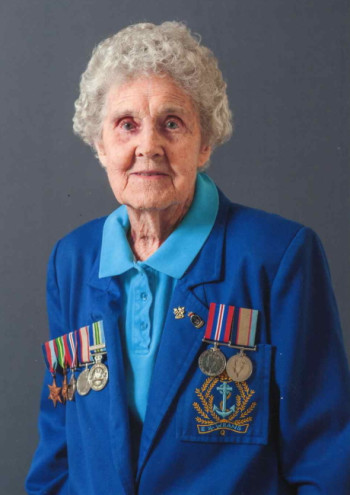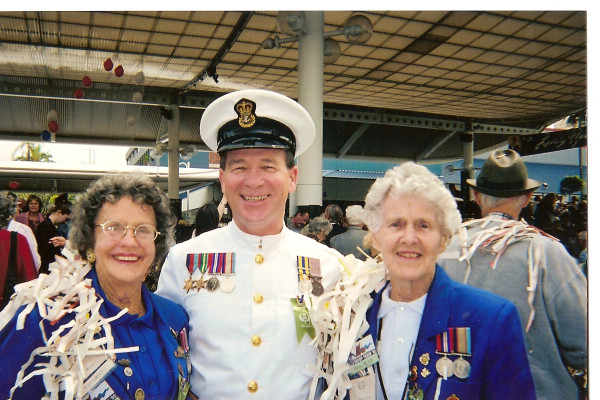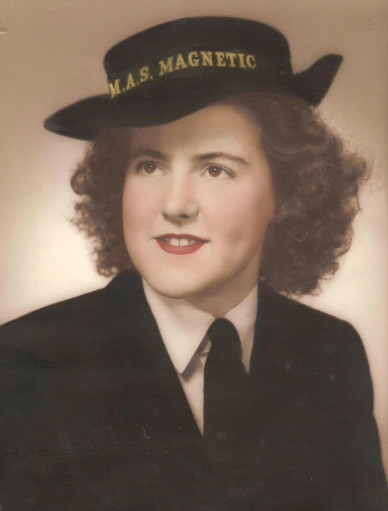Honouring World War II Navy Veteran Dawn Walsh on Remembrance Day

When Dawn Walsh joined the Women’s Royal Australian Naval Service (WRANS) in 1943, she was just 18 years old - a determined young woman from a small town with a deep sense of duty and adventure.
Her decision to enlist was inspired by personal loss. “In 1942 my cousin, Leo Lohrisch, lost his life while serving on the cruiser HMAS Perth during a heavy naval battle in the Sunda Strait,” Dawn recalls. Sadly, many of the 681 officers and crew onboard went down with the ship. “Because of Leo’s involvement, this event caused me to develop an affinity with the Navy.”
Born Edna but affectionately known as Dawn, she was stepping into a world where women in the armed forces were still a rare sight. Dawn needed her father’s permission to enlist, as she was under 21. “At 18 years I needed Dad to sign on ‘the dotted line’. With my mother’s help and a lot of coaxing, Dad didn’t have a chance with two women!” she laughs.
Dawn left her home-town Barcaldine in central west Queensland for training at HMAS Moreton in Brisbane. She was then posted to HMAS Magnetic in Townsville, where she served in communications. Her role was vital to naval operations - and shrouded in secrecy. “We worked closely with the Coders by typing and receiving coded messages on a teleprinter,” she said. “Often a special word would head the transaction which indicated it was secret or important. We were sworn to secrecy."
"It wasn’t until the government absolved the 30-year secrecy law and later during our first WRAN re-union held in Brisbane, each of us knew what the other communicator did. Who said women can’t keep a secret?" she jests.
Life in the WRANS brought challenges and camaraderie in equal measure. Dawn remembers her first day clearly: “I was told to make a bed. After I finished, the Officer pulled it apart and said, ‘This is how you make a bed PROPERLY.’ I’ve never forgotten that lesson and am now a fanatic on making beds properly!”
The WRANS lived in watch-keepers’ huts and worked “24 hours on, 24 hours off.” Between shifts, there were moments of laughter and music. “Every week, transport would take us to the Garbut Air Force dance band, where a dance was held in one of the aircraft hangars,” she says. “I enjoyed these occasions, but I was always mindful that any one of my dance partners may not make it safely back home.”
Her service continued until July 1946, when she was demobilised and returned home to Barcaldine. But the discipline, friendships, and lessons from those years stayed with her for life.
Dawn said ANZAC Day and Remembrance Day bring back memories of the lasting friendships she formed while in the WRANS.
“It reminds me of those who fought for our country so that Australians can enjoy the many privileges we have today," she said.
In 2005, Dawn returned to Townsville for the 60th anniversary of the end of World War II — an experience she will never forget. “Because June and I were forerunners of women being accepted into the Navy, the media featured us as ‘National Treasures’, which greatly amused us,” she said.
Now 99 years old, Dawn continues to honour those who served. “I believe young Australians are already keeping the ANZAC spirit alive. It’s important that we never forget the sacrifices many Australians made for us - and how cruel wars are.”

Celebrating the 60th anniversary of the end of WWII in Townsville in 2005.



